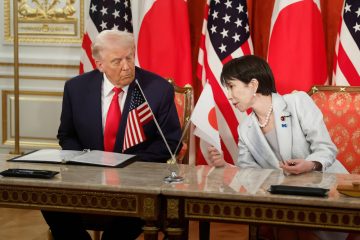The conflict between Israel and Iran intensifies with Iran’s use of cluster bombs

As the Israel-Iran conflict progresses into its eighth day, tensions have escalated significantly. On Friday, both countries initiated extensive missile and drone assaults, representing the most severe exchange to date. Israel has focused its efforts on key Iranian nuclear infrastructure, which has elicited a significant response from Tehran. In an important step, Iran launched missiles equipped with cluster munitions — marking the first verified deployment of these weapons in the current conflict. One of these strikes impacted an Israeli hospital, resulting in injuries to dozens.
In the aftermath of the hospital attack, Israeli Prime Minister Benjamin Netanyahu declared that Iran’s leadership would face a “full price” for their actions. He remarked that Israel is “ahead of schedule” in its military campaign, having already exceeded initial expectations. “We are progressing at a quicker pace than originally anticipated. “Our goal is clear: to neutralise Iran’s nuclear capabilities before it is too late,” Netanyahu said.
The Israel Defense Forces (IDF) persisted in their targeted operations against Iranian military and nuclear assets, encompassing facilities associated with Tehran’s nuclear program. Israel asserts that it possesses the ability to strike all of Iran’s nuclear installations — including the heavily fortified Fordow site, which is constructed deep within the mountains.
Iran asserts that its nuclear program is intended for peaceful purposes; however, Israeli officials contend that it poses a direct threat to regional stability. IAEA confirms strikes on multiple nuclear sites. The International Atomic Energy Agency (IAEA) is meticulously monitoring the repercussions of Israeli airstrikes initiated under “Operation Rising Lion” starting June 13. Director General Rafael Grossi confirmed damage at nuclear facilities in Natanz, Esfahan, Arak, Tehran, and Khondab.
At Natanz, the above-ground components of the Pilot Fuel Enrichment Plant were obliterated, alongside the electrical systems essential for underground operations. “It was confined to this facility. “There was no radiological impact externally,” Grossi said. Nonetheless, contamination within the facility was verified. Esfahan’s location experienced damage to a uranium conversion facility and a reactor fuel production site. The Tehran Research Center and TESA Karaj, both engaged in the production of centrifuges, were similarly targeted. At Khondab, a heavy water reactor that is currently under construction sustained damage, although it contained no nuclear material.
Grossi cautioned that the quantity and distribution of nuclear material throughout Iran presents a “potential for a radiological accident” that is very real. He added, “Military escalation threatens lives, increases the chance of a radiological release… and delays indispensable work towards a diplomatic solution.” In light of diminished IAEA presence attributed to security concerns, Grossi indicated that inspections would recommence when conditions permit, and emphasized the agency’s preparedness to deploy nuclear safety teams. “In light of these challenging and complex circumstances, it is essential that the IAEA is provided with timely and regular technical information,” he stated.
Tehran has opted to utilize cluster munitions in its response. Iran has reacted decisively, unleashing a series of drones and missiles aimed at Israeli targets. The Israeli military has confirmed that one of the missiles utilized cluster munitions — representing the first documented instance of such internationally contentious weapons in this conflict. A particularly severe assault targeted a medical facility in southern Israel, resulting in injuries to 71 individuals. Most victims experienced minor injuries or trauma induced by panic while attempting to find shelter. The Israeli Health Ministry has verified the toll, indicating that emergency services continue to operate at a heightened state of readiness.
Washington monitors the Israel-Iran conflict with keen interest. As the crisis unfolds, the White House indicated increasing apprehension. During a briefing on Friday, White House Press Secretary Karoline Leavitt indicated that US President Donald Trump would determine “within the next two weeks” whether to prolong military support for Israel. “Based on the fact that there’s a substantial chance of negotiations that may or may not take place with Iran in the near future, I will make my decision whether or not to go within the next two weeks,” Leavitt quoted Trump as saying.
In a notable development, US intelligence now assesses that Iran could manufacture a nuclear weapon in “a couple of weeks” if authorized by Supreme Leader Ayatollah Ali Khamenei. In private settings, diplomatic discussions are taking place. Reports indicate that Trump’s special envoy Steve Witkoff has engaged in several phone conversations with Iranian Foreign Minister Abbas Araqchi, as per sources acquainted with the situation.
Transformations within Iran’s military hierarchy. In a move that contributes to the existing volatility, Iran has appointed Brigadier General Majid Khadami as the new head of intelligence at the Islamic Revolutionary Guards Corps (IRGC). The appointment follows the Israeli airstrikes that resulted in the deaths of his predecessor, Mohammed Kazemi, along with two other senior officers — Hassan Mohaghegh and Mohsen Bagheri — on the previous Sunday. The shift in leadership indicates a possible strengthening of Iran’s military stance, amid escalating tensions.
The United States reallocates assets from its base in Qatar. In the interim, close to 40 US military aircraft have disappeared from the tarmac of a significant American airbase in Qatar during the last fortnight. Military analysts propose that this could serve as a preemptive strategy to protect US assets from possible Iranian retaliation, particularly if the US increases its direct involvement in the conflict.










